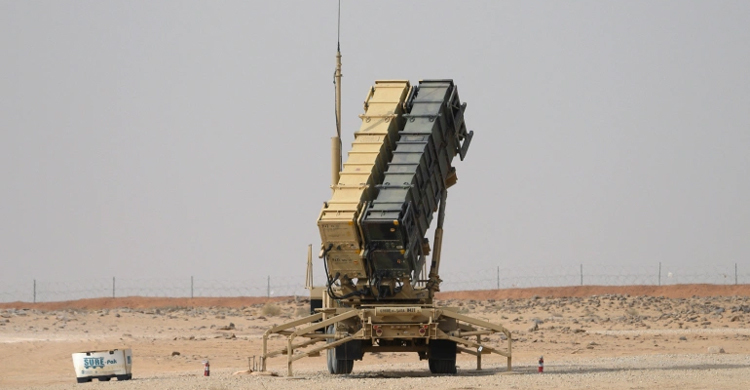US State Dept backs latest raft of Saudi, UAE, Jordan arms sales

The US State Department has approved Washington’s latest raft of proposed weapons sales to the Middle East, with Saudi Arabia, Jordan and the United Arab Emirates (UAE) preliminarily approved for deals – if they are not blocked by US Congress.
The sales come at a time of heightened tensions with Iran, and as the UAE has seen a rare string of attacks claimed by the Houthis, a rebel group that a Saudi-led military coalition, of which the UAE is a member, continues to fight in Yemen. Saudi Arabia has been regularly targeted by Houthi missile and drone attacks in recent years.
The United States has said it will continue to support the defence capabilities of its allies in the region – notably Saudi Arabia and the UAE – and has emphasised arms sales as one avenue for that support.
However, President Joe Biden announced in February last year that the US was ending support for offensive operations by the Saudi-led coalition in Yemen and all “relevant” arms sales.
Advocates and legislators have since decried the approval of a $650m sale of air-to-air missiles to Saudi Arabia in November as undermining that pledge.
The most recently approved sales to Saudi Arabia include 31 communication and navigation terminals at a cost of $23.7m to upgrade the kingdom’s missile defence system, according to the Pentagon.
The State Department approved the UAE to buy $65m worth of spare parts for its Homing All the Way Killer (HAWK), Phased Array Tracking Radar to Intercept on Target (PATRIOT), and Terminal High Altitude Area Defense (THAAD) missile defence systems.
“This sale supports the UAE’s existing ability to deter and defend against hostile threats by maintaining the operational readiness of critical air defense systems,” the Pentagon’s Defense Security Cooperation Agency said in a public notice.
“This proposed sale will support the foreign policy and national security of the United States by helping to improve the security of an important regional partner,” it said.
The agency also approved Jordan’s request for 12 F-16C Block 70 fighter jets, radios targeting pods and associated munitions components including guided missile tail kits. The prime contractor for the jets is Lockheed Martin Corp.
The approval by the State Department does not indicate that contracts have been signed or that negotiations have concluded.
Congress can also pass legislation to block the proposed deals, an arduous process that requires simple majorities in both chambers. The president could then veto the legislation, which would require a two-thirds majority vote by both chambers to override.
In some situations, US presidents are able to legally sidestep the congressional review.
In 2019, the Trump administration invoked a provision of the 1976 Arms Export Control Act – which allows a president to bypass Congress if they believe a sale is a necessity for national security – to sell $8bn worth of precision-guided missiles and warplanes to Saudi Arabia.
Countries in the Middle East accounted for nearly half of all US arms exports between 2016 and 2020, according to an analysis by the Stockholm International Peace Research Institute. The region was the fastest growing overall importer of arms during the period.
During Biden’s first year, overall US arms sales dipped by 21 percent in the 2021 fiscal year compared with the previous year, as the administration has shifted away from Trump’s more aggressive sales practices.
The Biden administration is also in the midst of conducting a review of its arms transfer policy, which Biden is reportedly hoping to shift to put a greater emphasis on human rights, a key campaign promise.
Source: Al Jazeera



